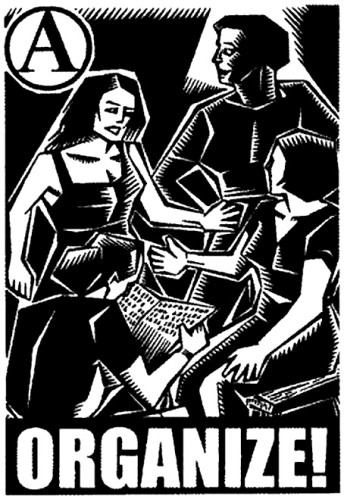When we count paid and unpaid work, we see that on average, women spend more of our lives labouring, yet we receive fewer financial or material rewards for our work in comparison to men. Statistics published in 2008 confirm that women in Canada were still earning significantly less than men1. Within this past decade, single women, single mothers, and women with a lower level of education have had notably lower average incomes, respectively, than single men, single fathers, and men with an equivalent lower level of education2.
In addition to this ongoing wage gap, research by both the Canadian Centre for Policy Alternatives as well as the Canadian Women’s Foundation points out that women are much more likely to do unpaid work such as childcare, caring for sick or elderly family members, or household labour3. These are not responsibilities that simply “add on” to our workload, but rather they are also shown to interrupt women’s participation in paid work or studies, thereby limiting our opportunities for financial independence4. While this absence from the labour market may not always be experienced as a burden or obligation, the gender discrepancy is still worth noting.

Job security remains a challenge for women and trans and two-spirit people. In addition to having to worry if we will be hired or not based on our appearance, or the perception of our gender expression, race, sexuality, ability, etc., many of us understand these same forms of discrimination as factors that put us at risk of being unsafe or insecure in our work. For example, the prevalence of spaces dominated by those who benefit from our structural oppression (such as men), and the common occurrence of sexual harrassment and assault, mean that we are regularly at risk of emotional and physical violence at work. As another example, transgender people in Canada report being arbitrarily turned down for jobs for which they are qualified, and facing obvious gender discrimination during interviews, leading to increased unemployment5. Women who are recent immigrants to Canada are also more likely to have a range of barriers to their employment. For example, immigrant women's training is often not recognized in Canada. They can also face racist misogyny, discrimination based on faith or language, and difficulties adjusting to new systems of housing, education, etc.6
Poverty and under-employment are unfortunately also closely linked to criminalization. When we talk about women’s working conditions, it’s important to consider “underground” or criminalized workers. The more people are denied access to their basic rights and treated inequitably when looking for work, for social assistance, or other benefits, the more it becomes necessary or practical to engage in “underground” economies to survive. We can look at, for example, the sex trade, where most workers are women or feminized people. As the Montréal organization Stella argues, the criminalization of the sex trade leads to high levels of vulnerability and risks to the health and safety of workers in this industry7. We can’t forget that more and more of these (and many other, mostly racialized) women are being thrown in prisons, where they may then continue to work in some of the worst conditions in Canada. As another example, a letter from the Montréal Non-Status Women’s Collective describes how women without legal status in Canada face the additional barriers of not having access to the legal entitlements that citizens have8. They may be workers, mothers, they may be sick or have disabilities, but they are not legally entitled to health care or worker’s rights or other benefits in Canada.
Poverty can make us feel hopeless, isolated, and terrified. So can other systemic inequalities and interpersonal aggressions targeted at us because of the oppressions that structure our society. When we are forced to understand precarity and vulnerability as normal conditions of our participation in economic systems, it becomes even harder to believe that we have power to fight against those conditions. However, the truth is that we are not alone and if we find ways to reach out and connect, we can find people who share a common ground for resistance. The more opportunities we have to learn about each other’s conditions and to work together, the more we can learn how to support one another and to empower ourselves.
Notes:
